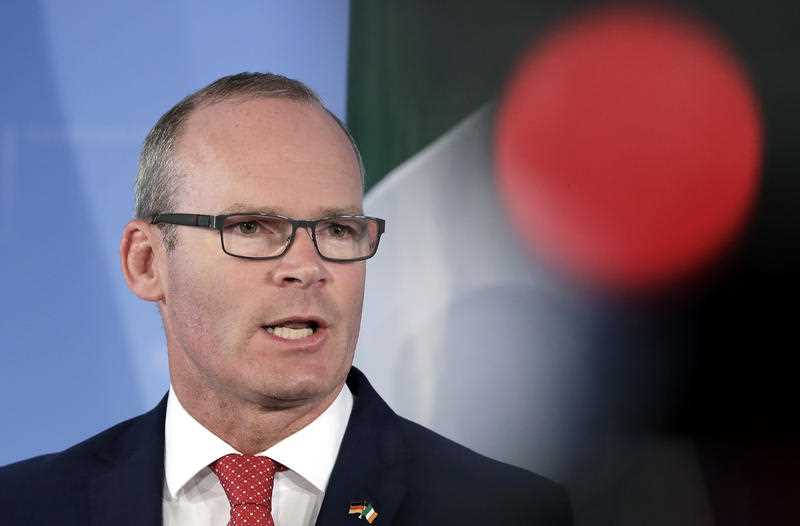Ireland has accused Britain of “shifting the playing field” in talks to resolve post-Brexit trading issues in Northern Ireland after London emphasised the need to remove EU judicial oversight of the issue.
On Saturday, Britain’s Brexit minister David Frost released extracts of a speech he is due to make on Tuesday, saying the European Court of Justice (ECJ) has created a “deep imbalance” in the way the Northern Ireland protocol operates.
The European Commission, which in July rejected outright London’s call to end the role of the ECJ, will publish proposals later this week aimed at smoothing trade between Northern Ireland and the rest of the United Kingdom.
The top EU official dealing with the matter has said the measures will be “very far reaching”.
“This is being seen across the European Union as the same pattern over and over again. The EU tries to solve problems, the UK dismisses the solutions before they’re even published and asks for more,” Irish Foreign Minister Simon Coveney told national broadcaster RTE.
“The truth is they know the EU can’t move on this issue (the role of the European Court of Justice), yet they’re still asking for it … At some point the EU will say enough, we cannot compromise more and I think we’re very close to that point now.”
Coveney said he thought Britain ultimately did want to reach an agreement but that it had to compromise too.
Commission vice-president Maros Sefcovic said last week that “99.9 per cent” of conversations he had had on a recent trip to Northern Ireland concerned issues related to customs checks, food and plant safety, and the supply of medicines from Britain.
The ECJ was mentioned just once and neither by the business community or civic society, he said.
That view was reiterated by Coveney and politicians from Northern Ireland’s Irish nationalist Sinn Fein and SDLP parties, and the cross-community Alliance Party.
The Democratic Unionist Party (DUP), Northern Ireland’s largest pro-British party, has threatened to pull out of the region’s power-sharing government unless big changes are made to the protocol, and it has expressed concerns over the ECJ, saying it preferred some form of independent arbitration process.
However DUP leader Jeffrey Donaldson also welcomed what he described as a “change in tone from the EU” and told the BBC that he would judge the forthcoming proposals in the round.
AAP



